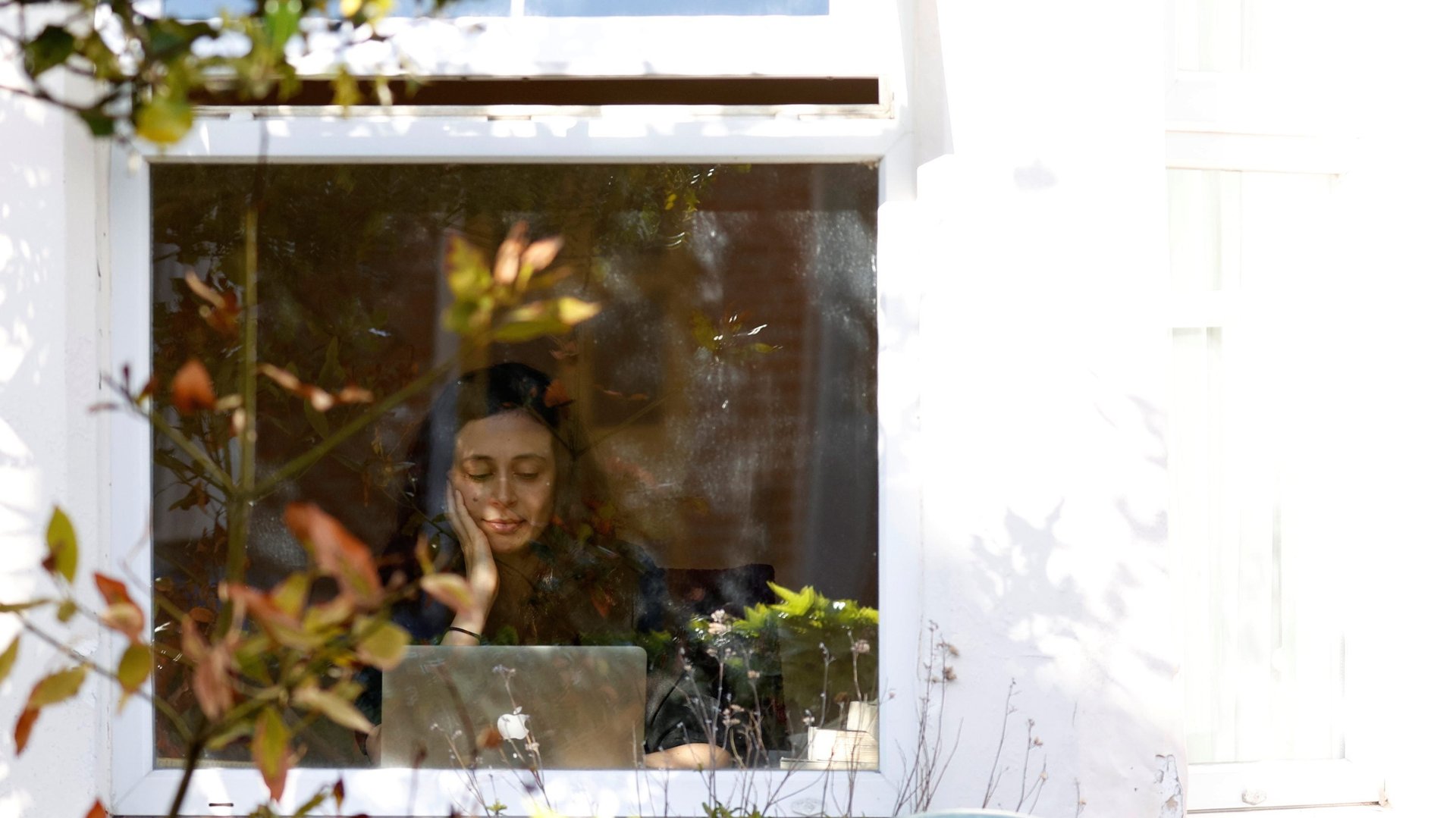The reason “Zoom fatigue” hits women harder than men
During Zoom meetings with colleagues, I am usually holding a second, secret meeting with my own face.


During Zoom meetings with colleagues, I am usually holding a second, secret meeting with my own face.
The conversations in this meeting-within-a-meeting can get pretty tense. Why are you like this? I ask my chin, which is sprouting a bright red pimple. You need a whitening kit, I tell my teeth, which look dingy when I smile at a colleague’s joke. Stop looking so tired! I command my under-eyes circles, worried that my teammates will mistake my sleepiness for boredom.
Getting off the call, I often feel noticeably disheartened—not because of anything my co-workers said, but because I’ve just spent 30 minutes trying to resist the self-critical thoughts that women are typically socialized-slash-brainwashed with.
Plenty of other women are in this same technological boat, according to new research from authors at Stanford University and the University of Gothenburg in Sweden. Women are more likely than men to experience so-called Zoom fatigue. The reason comes down to what the researchers call “mirror anxiety”—a feeling of self-consciousness “triggered by the self-view in video conferences that acts as an omnipresent mirror during social interactions,” according to the paper.
How distracting is it to see yourself on a Zoom call?
The research, which was published on SSRN and has not yet been peer-reviewed, is based on surveys of nearly 10,600 people about their experiences of Zoom meetings. They found that 1 in 7 women report feeling “very” or “extremely” fatigued after Zoom calls, compared to 1 in 20 men.
Women also had longer meetings and fewer breaks between them, but the gender difference remained even after the researchers controlled for those factors. The biggest reason for the gender discrepancy lay in the differences between how men and women responded to questions like, “During a video conference, how concerned do you feel about seeing yourself?” and “During a video conference, how distracting is it to see yourself?”
Women were more likely to report being negatively affected by seeing themselves onscreen, in keeping with other research that shows women are more prone to “self-focused attention” than men—a habit that’s linked to depression and anxiety. The researchers also found that women were more likely to use first-person pronouns like “I,” “me,” and “my” in the survey’s open-ended responses, another sign of self-focused attention that has been linked to depression.
The study has several limitations, including the fact that participants were self-selecting (and therefore not representative of the general population) and it relied on people to self-report how much they used Zoom and how they felt afterward. Memory can be deceiving.
How to be less self-conscious on video calls
So why is it that watching ourselves in video cameras creates such a big emotional wallop for some of us? For one thing, as Barnard psychologist Tara Well previously told Quartz, “We’re all wired to find problems and faults and flaws and foibles. When we look at ourselves for more than a few minutes, we see things that are wrong with us.”
To combat these tendencies, Well recommends mirror meditation, in which people spend time learning to gaze non-judgmentally at their own reflections. Try sitting in front of a mirror for 10 minutes a day and following Well’s instructions:
“Bring your attention to the present moment with yourself. Then have an open awareness, where you’re open to seeing yourself in a new way, you’re open to not knowing what you’re going to necessarily see. [And then] have a kind intention toward yourself.”
Another good option is to simply disable self-view in Zoom.
Other downsides to video meetings
The Stanford paper describes a number of other psychological downsides of Zoom that can’t be easily fixed:
- Feeling physically trapped (since you can’t stretch or move around the way you can during in-person interactions)
- Coping with hyper gaze (having 17 pairs of eyes on you, whether or not you’re speaking, can make you self-conscious)
- Experiencing cognitive overload (since we have to make extra efforts to communicate nonverbally on Zoom and interpret others’ gestures, leading to situations in which we find ourselves overanalyzing whether our boss’s slight head-nod means she’s considering our idea or actually hates it but is too polite to say so)
Despite these problems, Zoom isn’t going anywhere—particularly as more companies plan to transition to hybrid work or go entirely remote. But the knowledge that video meetings have a disproportionately negative impact on women may be one more reason to try to minimize them, or to swap out a Zoom chat for picking up the phone.